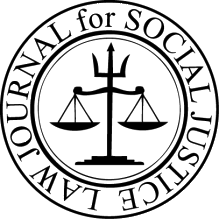By Keely Driscoll. The legal relationship between Tribes and the federal government rests on a long history of constitutional, treaty, and case law. A foundational principal of Federal Indian Law is the federal trust responsibility, under which the United States is expected to protect Tribal interests. As it stands, however, that trust has been repeatedly violated through the federal government’s use of eugenics and forced sterilization of women, particularly incarcerated women, immigrants, and women of color. Moving forward, greater oversight and reporting efforts are needed to ensure women are not forced to undergo irreversible procedures.
Our most vulnerable on the streets: The crisis of unhoused seniors
By Kyle Bycroft. Arizona has seen an unprecedented rise in its unhoused population in the last several years, and senior citizens bear some of the greatest hardships of life on the street. Unhoused seniors often face unique and long-lasting health impacts due to factors like exposure to illness, addiction, unchecked mental health problems, and extreme temperatures—high in the summer and low in the winter. Now, states are using creative means to combat the crisis by diverting federal Medicaid funds to provide housing for their most vulnerable residents. But doctors and housing experts say temporary solutions are not enough to create lasting change.
How do disabilities impact employer-provided health insurance?
By Han Jeong. Many U.S. employers provide risk-rated health insurance to employees, meaning the coverage premiums are based in part on employees’ current health and preexisting conditions. This approach, however, threatens to discriminate against employees with disabilities, who will be seen as a higher risk to insurance companies. Meanwhile, employers—either consciously or not—may opt to avoid hiring people with disabilities or preexisting conditions to avoid rising healthcare costs, despite federal laws that prohibit discrimination based on disabilities. Recent updates to federal health legislation are intended to reduce discrimination and protect patient privacy.
Our people are not for sale: How Medicaid program fraud targeted tribal members
By Shandiin Herrera. Health and safety are essential to a thriving community. As such, Native American leaders are committed to ensuring that quality services are provided to all tribal members. But a major fraud scheme uncovered by Arizona agencies and tribal governments in 2023 robbed the state of millions of dollars in state health and safety funding, taking advantage of a loophole in the Arizona Health Care Cost Containment System, or AHCCCS. The perpetrators defrauded taxpayers, but even more importantly they put the health and safety of vulnerable tribal members at risk and contributed to the delegitimization of essential state programs on which many people rely.
The criminal legal system significantly lacks mental health resources
By Jennifer Zarour. The United States criminal justice system significantly lacks adequate resources for seriously mentally ill (SMI) people in jails and prisons. In fact, nationwide psychiatric care for SMI individuals is nearly inaccessible—in 2023, there were only 10.8 state psychiatric hospital beds for every 100,000 Americans. To better address mental illness and protect SMI individuals and those around them, the U.S. criminal legal system has a responsibility to provide proper care and stop the vicious cycle of incarceration and hospitalization.
